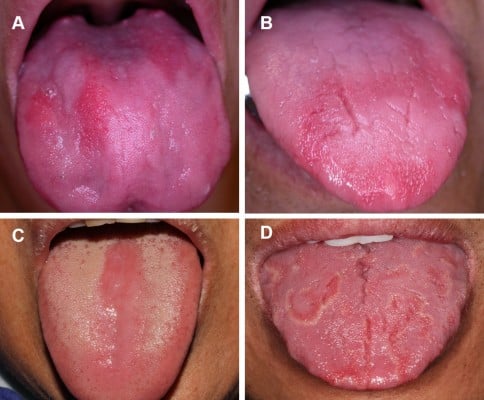Vitamin B12 deficiency is a common problem among vegans, vegetarians and those who follow plant-based diets.
The recommended daily allowance of vitamin B12 is 2.4 micrograms per day for adults under age 50, and 2.6 micrograms per day for adults over age 50. Vitamin B12 is found in animal products such as meat, fish and dairy, but it’s also found in fortified foods such as cereals and nutritional yeast.
Vitamin B12 is essential for red blood cell production, nerve function, DNA synthesis and energy metabolism. A severe deficiency of this vitamin can lead to macrocytic anemia (a condition marked by enlarged red blood cells), peripheral neuropathy (nerve damage) and dementia.

Vitamin B12 Deficiency Test
Vitamin B12 is a water-soluble vitamin that plays a role in red blood cell formation, DNA synthesis and neurological function. This vitamin can be found in animal products like meat, eggs and fish. It is important to mention that the human body does not produce this vitamin, but it can be absorbed through certain foods or supplements.
If someone has been diagnosed with a vitamin B12 deficiency, he/she needs to undergo several tests to determine which type of deficiency they have. In other words, the doctor will order different tests to see if their body is able to absorb the vitamins from food or if there are other issues such as anemia or nerve damage that prevent them from absorbing nutrients properly.
The most common test ordered by doctors for this condition is called methylmalonic acid (MMA), which helps determine if there is an issue with cobalamin metabolism (a form of vitamin B12). If the MMA level is high, then it means that there is something wrong with your metabolism of cobalamin (1). In addition to this test, doctors may also order other blood work including homocysteine levels and methylmalonic acid levels in order to understand more about your condition (2).
Vitamin B12 Deficiency (Vitamin B12 Deficiency)
Vitamin B 12 deficiency is a condition in which the body does not have enough vitamin B 12.
Vitamin B 12 is needed for the normal formation of red blood cells and for the maintenance of the myelin sheath that surrounds nerve fibers. Vitamin B 12 is also essential for good neurologic function.
Vitamin B 12 deficiency can occur as a result of inadequate intake, malabsorption, or increased demand as seen in pregnancy and lactation or with use of alcohol, folic acid antagonists (e.g., metformin), or proton-pump inhibitors (e.g., omeprazole).
The most common form of vitamin B 12 deficiency is pernicious anemia, which occurs when stomach acid destroys intrinsic factor, preventing its absorption in the intestine. Other causes include dietary deficiency, gastrectomy, Crohn’s disease, pancreatitis, celiac disease, vitamin K deficiency (vitamin K dependency), steatorrhea (fatty stools), lactose intolerance and surgical resection of part of the small intestine (diverticulosis).
Vitamin B12 deficiency can have a variety of causes. The most common cause is low dietary intake. Other causes include malabsorption, pernicious anemia, and gastric surgery.
A deficiency may develop over time as a result of diet or malabsorption. It can also occur quickly in people with pernicious anemia or other disorders that prevent the absorption of vitamins and minerals from food.
Signs and symptoms may include:
Tiredness, weakness and lethargy (fatigue)
Difficulty concentrating, poor memory or confusion
Dementia (memory loss severe enough to interfere with daily life)
Pale skin, paleness around the mouth, easy bruising and bleeding problems (bleeding gums, blood in urine or stools)
Diagnosis includes blood tests that measure vitamin B12 levels.
Vitamin B12 deficiency is a condition where the body does not have enough vitamin B12. Vitamin B12 is needed for the body to make red blood cells and nerve cells, as well as to make DNA (the genetic material in all cells).
Vitamin B12 deficiency can be caused by many conditions, including:
Celiac disease or other autoimmune disorders that affect the small intestine; some types of cancer; a disorder called pernicious anemia; long-term use of certain medications (including proton pump inhibitors); and eating a vegetarian diet that does not include vitamin B12-fortified foods.
The symptoms of vitamin B12 deficiency vary depending on which type of deficiency you have and how severe it is. Some people do not have any symptoms at all until they become very ill with anemia or nervous system problems.
Vitamin B12 deficiency is a common occurrence in the United States. It’s estimated that up to 40% of older adults have low levels of vitamin B12. This deficiency can cause health problems like anemia, fatigue and nerve damage.
The body needs vitamin B12 to make DNA and red blood cells. Vitamin B12 deficiency can lead to anemia and other serious conditions.
To figure out if you have a vitamin B12 deficiency, your doctor will do a blood test called methylmalonic acid (MMA) or serum homocysteine test. If the results are abnormal, they may recommend more tests or treatment.

Vitamin B12 deficiency is a serious condition. It can lead to anemia, nerve damage and other health complications. Vitamin B12 deficiency test is performed to determine if you have a vitamin B12 deficiency or not.
How Long To Recover From Vitamin B12 Deficiency?
Recovering from vitamin B12 deficiency may take months or years, depending on your age, the cause of your deficiency and how severe it is. For example, people who develop a vitamin B12 deficiency due to pernicious anemia may need to take vitamin B12 supplements for several years before their body can absorb enough of the vitamin from food sources alone. When taking vitamin supplements, it’s important to monitor your levels so that you don’t take too much or too little.
Signs Of Vitamin B12 Deficiency
Vitamin B12 deficiency can cause many symptoms including:
Mood changes (depression)
Weakness in hands and feet (peripheral neuropathy)
Low energy levels (fatigue)
ICD-10 code for vitamin B12 deficiency:
G53.8 Other nutritional deficiencies, unspecified
G53.9 Nutritional deficiency, unspecified
How long to recover from vitamin B12 deficiency:

It takes 2–5 years to recover from vitamin B12 deficiency. If you have been deficient for a long period of time, your doctor may recommend that you take a monthly injection of the vitamin until your symptoms subside.
Signs and symptoms of vitamin B12 deficiency include:
A sore tongue (mumps), swollen red tongue (glossitis), and white patches on the tongue (leukoplakia). These symptoms are also seen in other conditions and can be caused by certain medications.
Dementia and memory loss, which can be caused by many conditions such as Alzheimer’s disease or other forms of dementia, including vascular dementia and frontotemporal dementia. Dementia is characterized by a decline in cognitive functioning that affects the ability to communicate, perform daily tasks independently and interact socially with others
Vitamin B12 deficiency is a serious condition that can lead to anemia and other symptoms. It’s often caused by a lack of vitamin B12 in the diet. Here’s what you need to know about vitamin B12 deficiency and its treatment.
Vitamin B12 Deficiency Test
The best way to test for vitamin B12 deficiency is by measuring methionine levels in your blood, according to the National Institutes of Health (NIH). Methionine is one of three amino acids (proteins) that help build protein in your body. Your body makes methionine from homocysteine, an amino acid found in your blood. Vitamin B12 helps turn homocysteine into methionine. If you don’t have enough vitamin B12, your levels of homocysteine will rise and eventually become toxic to your body.
Your doctor can order a blood test to check your homocysteine level — or they may recommend getting tested if you have symptoms of a vitamin B12 deficiency or are at risk for one because of your age or diet choices.
How Long Until My Symptoms Go Away?

If you’ve had a vitamin B12 deficiency for more than 1 year, it can take up to 2 years for all
Vitamin B12 deficiency is a condition that occurs when you don’t have enough vitamin B12 in your body. Vitamin B12 is needed to make new red blood cells and keep the nervous system working properly.
Vitamin B12 deficiency can lead to anemia, muscle weakness and tingling in your arms and legs (peripheral neuropathy), as well as mental health conditions like depression or dementia.
If left untreated, vitamin B12 deficiency may lead to serious complications such as heart problems or brain damage.
The most common causes of vitamin B12 deficiency include:
Vegetarianism or veganism — Vitamin B12 is only found naturally in animal products such as meat, dairy products and eggs. People who follow a strict vegetarian diet may have trouble getting enough vitamin B12 from their diet alone.
Intestinal surgery — Surgery on the stomach or intestines can cause problems absorbing vitamin B12 from food sources.
Poor absorption of nutrients — Conditions like Crohn’s disease or celiac disease can lead to poor absorption of nutrients from food sources including vitamin B12.
Vitamin B12 Deficiency
Vitamin B12 deficiency is a condition in which the body has a lack of vitamin B12. Vitamin B12 is necessary for normal cell division and nerve function. It is also important for the production of red blood cells. The most common cause of vitamin B12 deficiency is pernicious anemia, in which your stomach is unable to produce enough acid to allow vitamin B12 to be absorbed properly. Other causes include inadequate dietary intake, malabsorption conditions, or surgical removal of parts of your small intestine (such as due to Crohn’s disease or ulcerative colitis).
Vitamin B12 deficiency can lead to:
Lack of appetite
Fatigue
Weakness
Unusual sensations in hands and feet (numbness or tingling)
Dizziness
Confusion or difficulty thinking clearly.
